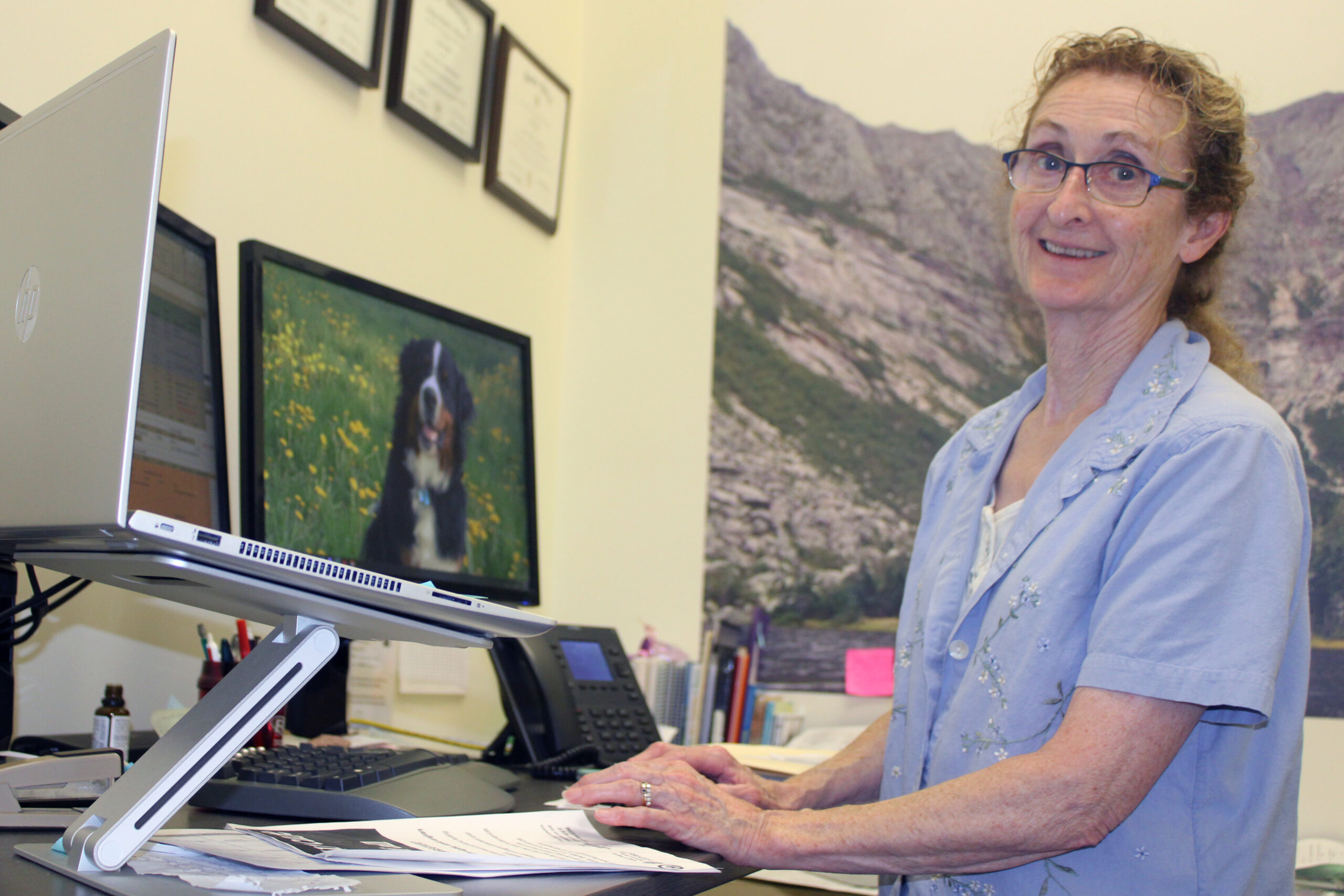
For Beverly Giles of Fort Fairfield, a new grant program has been a godsend.
Giles is one of 58 family caregivers in Aroostook County to receive money through a statewide pilot program called Respite for ME.
Caregiving is a full-time job, and without some kind of assistance, burnout happens. Respite for ME aims to provide extra help to people before that occurs.
“I don’t think there’s anyone strong enough to keep doing it day in and day out without some support that’s going to give them a little bit of relief,” Giles said.
The statewide two-year pilot program started in October 2022, fueled by $5.1 million through the Maine Jobs and Recovery Plan. Caregivers can apply for grants up to $2,000 for eligible expenses like self-care, hiring respite help or buying home medical aids.
Giles cares for her husband, who has Alzheimer disease, and daughter, who has Down syndrome. She received a grant earlier this year.
Giles used the money for dental care and medical supplies for her husband, and hired someone for periodic household help. She had cameras installed to help keep a better eye on her husband.
She also gave something to herself: a massage. She felt guilty about that, but her children have told her to take some time for herself, she said. The massage helped her relax and renewed her perspective, so she felt better able to cope.
The program caught the eye of Forbes magazine in December. Caregivers are usually not trained and experience stress and financial strain, writer Howard Gleckman said, and Maine’s program could be a model for other states.
Maine has 166,000 unpaid family caregivers who give more than 155 million hours to care for loved ones, according to the American Association of Retired Persons, Maine chapter.
Ruth White, manager of service coordination for the Aroostook Agency on Aging, said the program has been needed for a long time. More than 330 County people have asked about the grants, she said.
She cared for her mother for several years. She wouldn’t trade a moment of it, but she gets it.
“They’re tired, they’re frustrated, they’re burnt [out],” White said. “Respite allows you to learn to be grounded again — to fill your cup.”
There are qualifications, White said. People must actually be caring for someone and meet other guidelines from the Maine Office of Disability Services, part of the Maine Department of Health and Human Services, which administers the program.
The state’s five agencies on aging identify eligible people and find resources, she said.
The money can cover things like respite care, physical therapy, assistive technology, self-care or legal consultation, according to the aging and disability services office.
Caregivers must also show the COVID-19 pandemic affected their finances, stated the office’s website. That can include losing income from work reductions or job loss, having significant health or child care costs, paying for grocery delivery or losing other benefits like retirement.
Interest is high statewide. In the program’s first 10 months, 2,145 people have inquired about the respite grants and 365 have been approved, said Jackie Farwell, director of communications for the Maine Department of Health and Human Services.
With the third highest number of recipients, the Aroostook agency had reimbursed more than $36,000 in funds by the end of June, she said.
In other parts of Maine, Spectrum Generations in Augusta approved the most grants at 146, followed by the Southern Maine Agency on Aging at 103. The Eastern Agency on Aging in Bangor approved 33 people and Seniors Plus of Lewiston enrolled 26, Farwell said.
Jeffrey and Lisa Jandreau of Fort Kent, who care for their adult son with autism, used some of the funds to buy a computer both Jeff and their son can use.
Adam uses it to further his own skills and has learned to write letters to send to his friends, the couple said.
“It gives Jeff a little more free time so he can start doing a little more for himself,” Lisa Jandreau said. “He’s free to pursue something that gives him his own respite. He likes to work with wood.”
They also replaced a broken window and a poorly functioning toilet in their home — jobs they wouldn’t have had time to do themselves.
It can be tough to replace a $1,000 window, Lisa Jandreau said. Thanks to the grant, some major components of their house are now fixed, and that takes a burden off her husband’s shoulders.
Giles of Fort Fairfield wishes more people would access the program.
“We’re pretty tough in The County,” she said. “But there are times when we need to kind of drop that big shield.”






